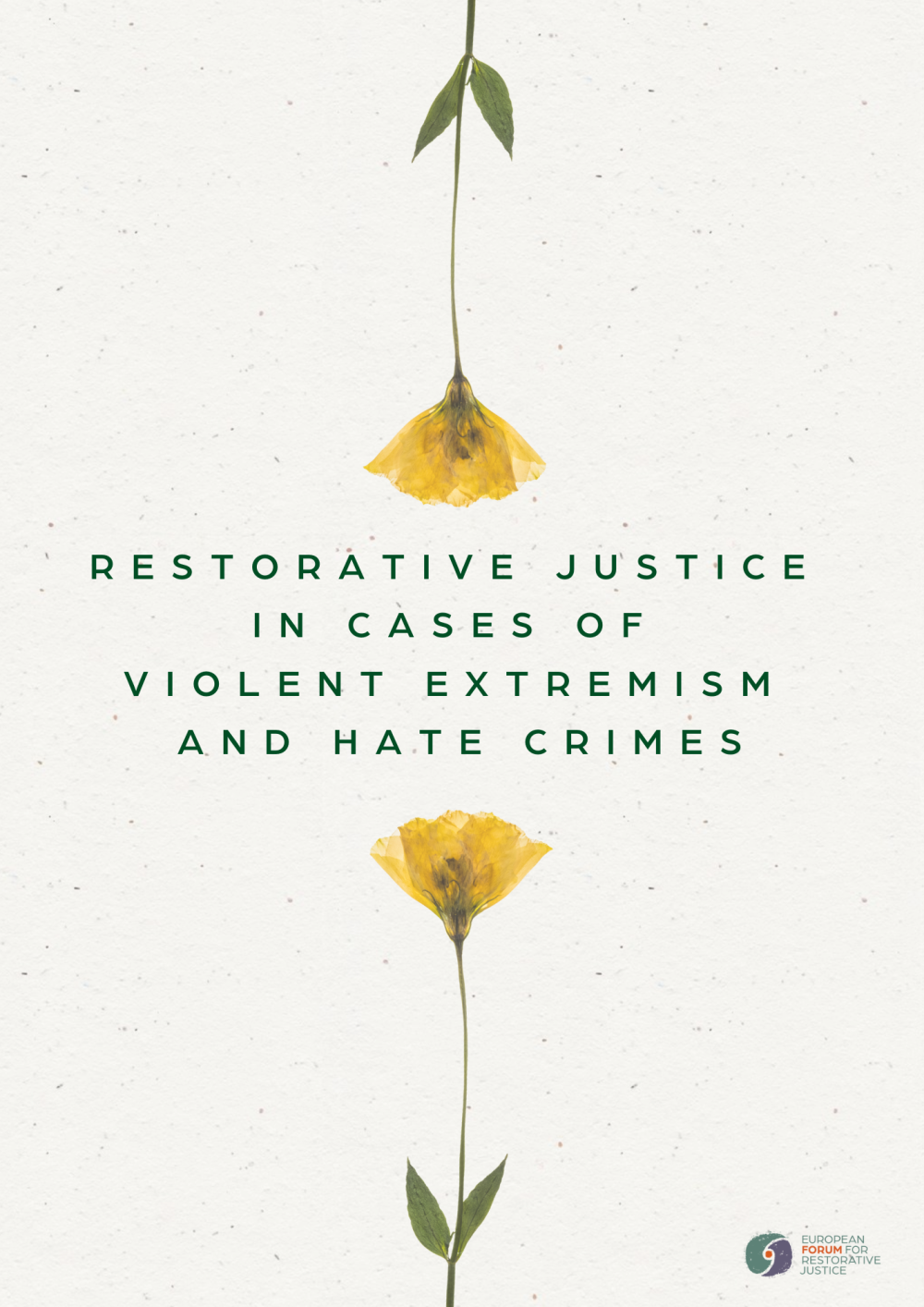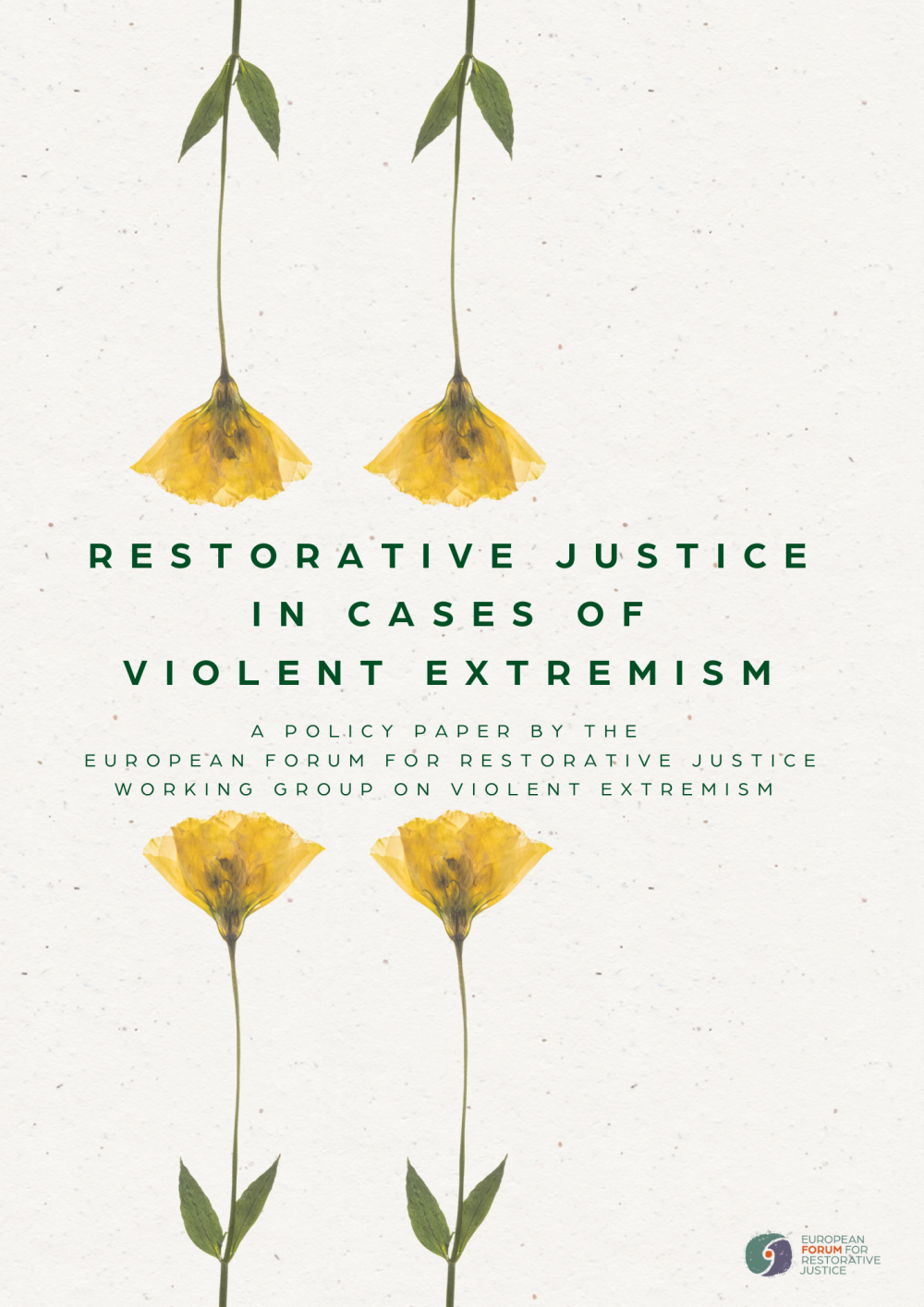
The“Working Group on Violent Extremism & Restorative Justice” is focusing on the question of how restorative justice can support the prevention of radicalisation and (violent) extremism, promote desistance from crime and include victims. In addition, the WG’s particular focus is on developing a training in the subject.
Radicalisation is a phased process in which an individual or a group embraces a radical ideology that can lead to an increased willingness to condone or use violence for political goals. The radicalisation process is unique to each individual. Radicalism challenges the legitimacy of established norms and policies. It does not, in itself, lead to violence. Extremism is different from radicalism. Extremists accept violence as a legitimate means for obtaining political goals without necessarily exercising violence themselves. Terrorism or violent extremism encompasses violent behaviours that originate in an ideology shared at least by a limited group of individuals. Violent extremism includes the willingness as well as training, preparation and the actual conduct of violent acts against civilians. Terrorists show a severe disconnect from society and tend to devalue or dehumanise their victims.
The restorative justice approach has great potential in responding to radicalisation, extremism and violent extremism / terrorist acts, and the ensuing polarisation. Restorative justice focuses on forms of political and pre-political communication, exchange and encounters that are able to allow ‘difficult’ but respectful conversations in societal space.
The core team of the Working Group is composed by European Forum for Restorative Justice (EFRJ) members, 1 Board member, 1 Staff member. If needed, the Working Group may invite experts outside the EFRJ membership for further consultation. The Working Group:
- produces a short document explaining the potential contribution of restorative justice in this domain;
- works together to develop a specific training of the EFRJ;
- supports and encourages research on the potential application of RJ in radicalisation and (violent) extremism;
- comes together to 1 day face-to-face meeting each year;
- commits to regular virtual meetings (Skype) and exchange of emails;
- can be consulted on this topic by EFRJ staff and members.
The members of the Working Group are selected based on their experience, profession, motivation to participate, and country representation.
- Miriam Attias (Finland)
- Emmanuela Crane (France)
- Graziella Fourez (Belgium)
- Joakim Hope Soltveit (Norway)
- Lucy Jaffe (United Kingdom)
- Katrien Lauwaert (Belgium)
- Cheryl Lubin (USA)
- Roberto Moreno (The Basque Country / Spain)
Working Group on Violent Extremism and RJ
Chair: Rotating chairs
Secretariat representative: Emanuela Biffi, EFRJ Programme Coordinator
Board representative: Tim Chapman
Members: see above



